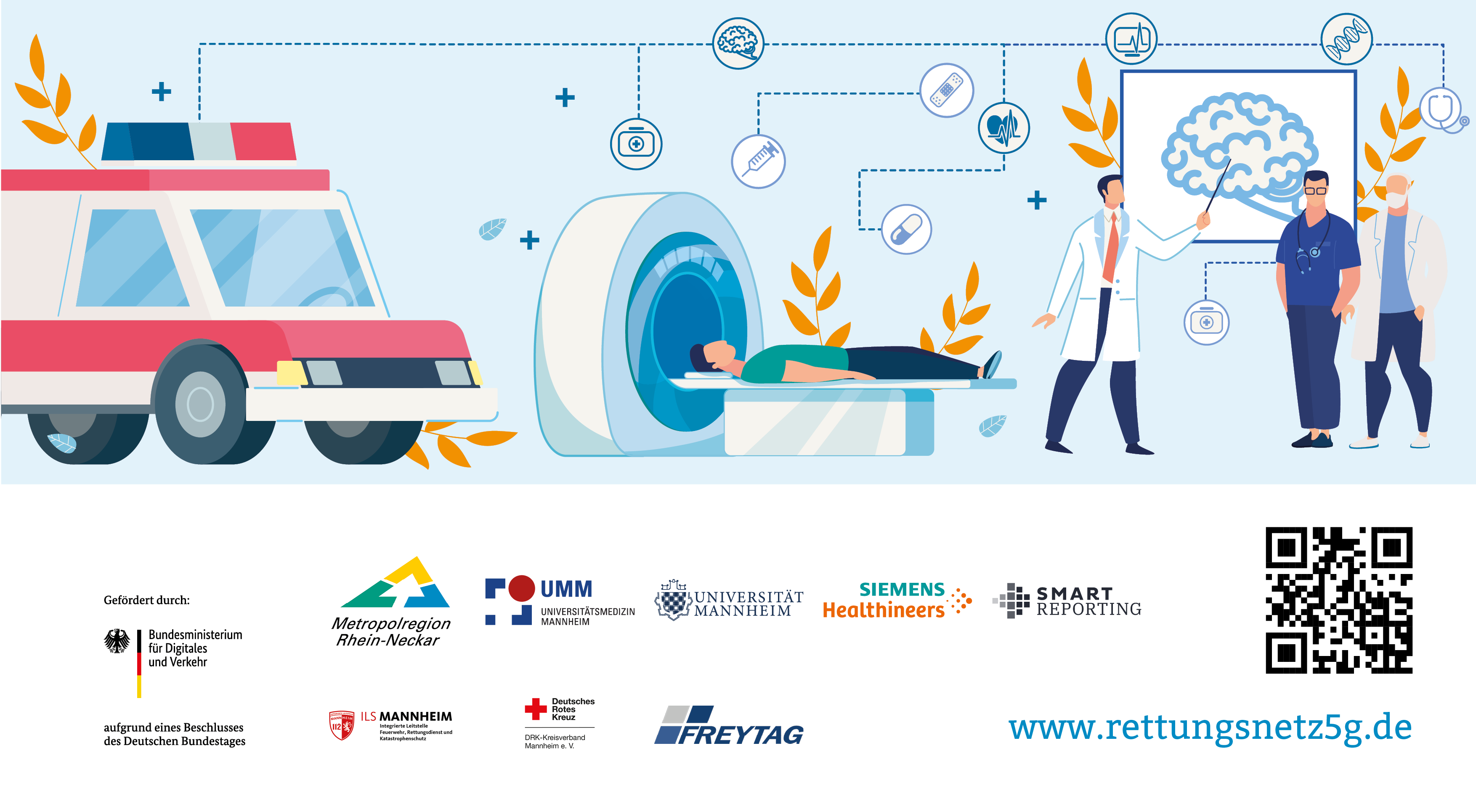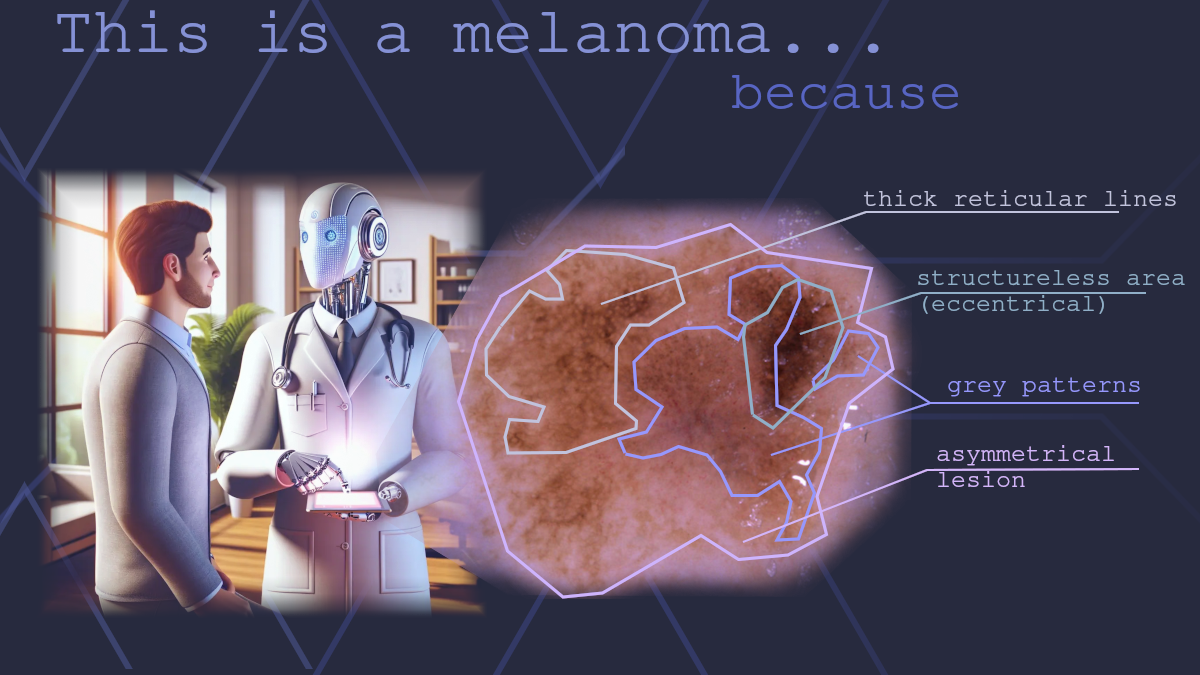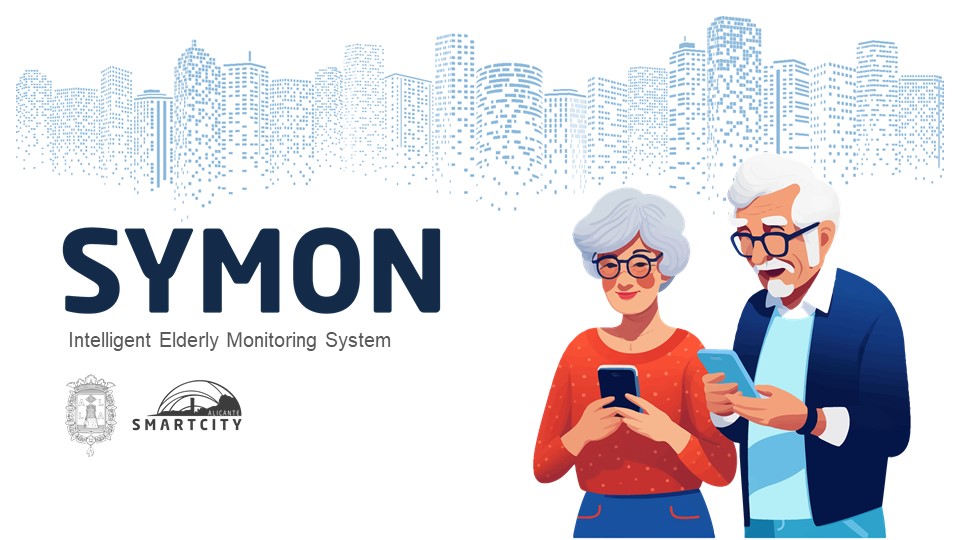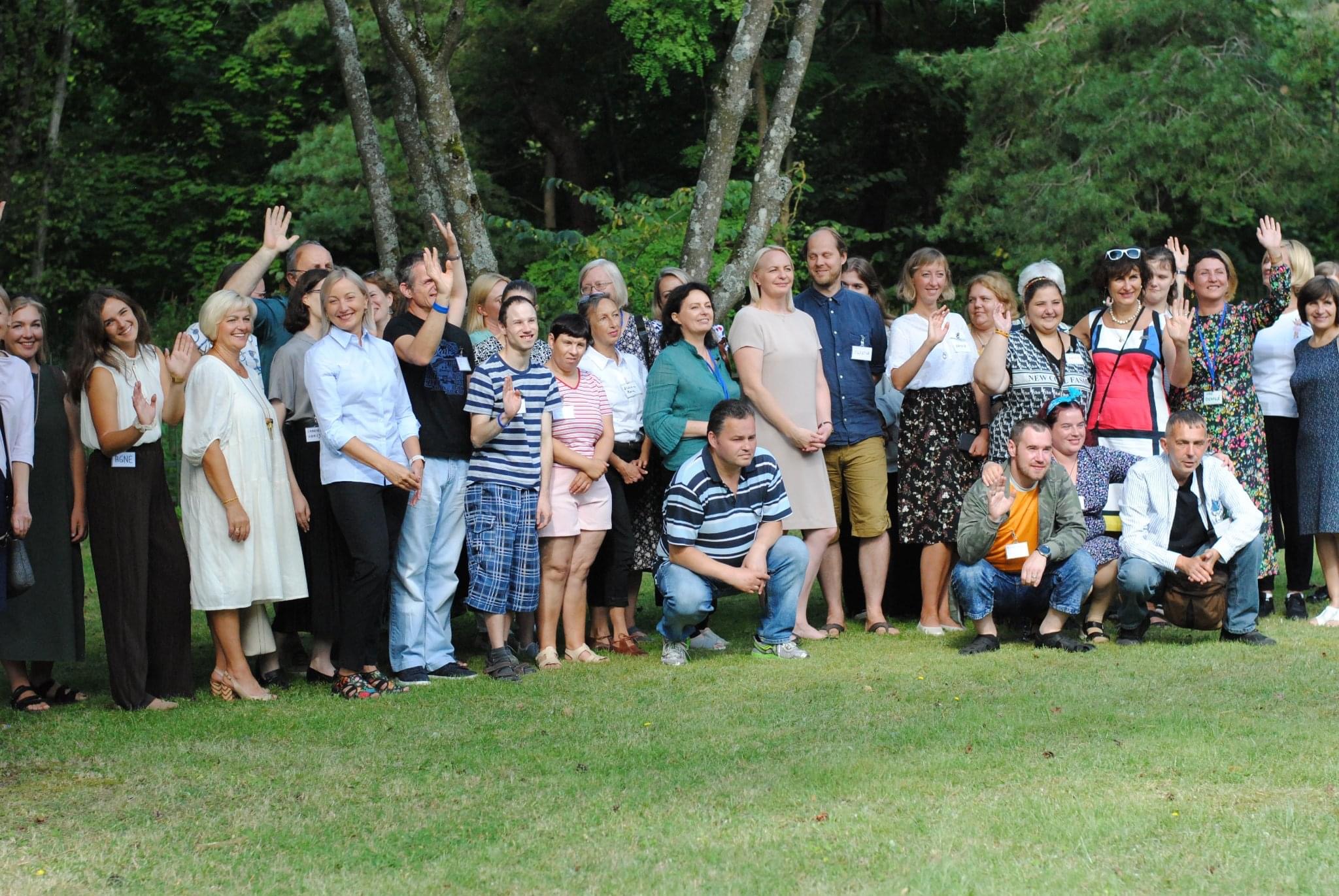 © © AdobeStock / TeraVector (edited by VRRN)
© © AdobeStock / TeraVector (edited by VRRN)A mobile and digital emergency service will enable significant time savings in first aid by transferring diagnostics and initial treatment steps to the site of the emergency.
REMOTE DIAGNOSTICS
Time is an important factor in emergency medicine: the time it takes until decisions concerning a targeted diagnosis and subsequent therapy are made is crucial for patients' chances of survival and outcomes. Until now, this time is dependent on the distance to the nearest clinic as well as the availability of specialist staff and equipment there. The use of 5G-technology can significantly shorten this critical time span. Using digital solutions and transfer technologies, it will be possible to relocate diagnostics and initial therapy steps to the site of the emergency.
SCANS IN THE AMBULANCE
Significant improvements can be achieved using the latest medical-technological innovations, such as telemedicine or mobile medical devices, particularly in rural areas where hospitals and specialist expertise are less available. These innovations are being implemented and tested in the RettungsNetz-5G project with the example of strokes: already in the ambulance, a neurological expert from the hospital can be consulted via video in real time. In addition, the use of a mobile cranial computed tomography (CT) located in the ambulance will be tested. The CT scan is used to determine the type and exact location of the stroke in the brain.
BETTER TREATMENT AND OUTCOMES
All the data obtained can be transmitted, analysed, and evaluated securely and in real time via 5G. The use of artificial intelligence is also being tested. This means that better diagnoses and faster decisions regarding the type and location of further treatment can be made in the ambulance. This integrated mobile and digital emergency medicine enables earlier and more accurate decisions regarding diagnosis and initial therapy steps. This is extremely important in all emergency situations, strokes as well as pulmonary embolism or myocardial infarction.



